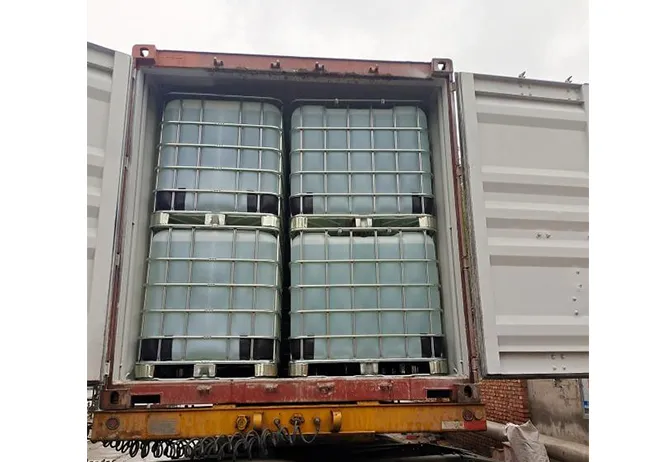
potassium sulfate fertilizer
The Importance of Potassium Sulfate Fertilizer in Agriculture
Potassium sulfate (K2SO4) fertilizer, commonly known as sulfate of potash, is one of the key fertilizers used in modern agriculture. It is widely valued for its dual contribution to plant nutrition and soil health. As agricultural demands continue to rise due to population growth and the need for sustainable food production, understanding the role of potassium sulfate fertilizer becomes increasingly important.
Chemical Composition and Benefits
Potassium sulfate is a source of two essential nutrients potassium (K) and sulfur (S). Potassium is crucial for a variety of physiological processes in plants, including photosynthesis, enzyme activation, and water regulation. It helps in improving crop quality, yield, and resistance to diseases and abiotic stresses such as drought and salinity. Sulfur, while needed in smaller amounts, plays a significant role in protein synthesis, chlorophyll formation, and the overall health of crops.
One of the most significant advantages of potassium sulfate fertilizer is its ability to deliver these nutrients without adding excessive chloride, which can be harmful to certain crops, especially those sensitive to salt—like fruits and vegetables. This makes potassium sulfate particularly suitable for chloride-sensitive crops such as tomatoes, potatoes, and grapes.
Application in Different Crops
Potassium sulfate is used in various agricultural contexts, benefiting a wide range of crops. In fruit and vegetable production, the addition of potassium sulfate can enhance quality traits such as color, size, and taste, which are vital for market acceptance. For instance, potassium boosts the sugar content in fruits, making them sweeter and more appealing to consumers.
In cereals and grains, potassium sulfate contributes to overall plant vigor and resistance to environmental pressures, enabling farmers to achieve better yield under challenging conditions. Additionally, potassium enhances root development, making plants more capable of accessing water and nutrients from the soil.
potassium sulfate fertilizer

Soil Health and Environmental Impact
The use of potassium sulfate fertilizer not only benefits crop productivity but also promotes soil health. It influences microbial activity in the soil, helping to create an environment conducive to nutrient availability and uptake. By improving soil structure and fertility over time, potassium sulfate acts as a long-term investment in soil health.
Moreover, potassium sulfate fertilizer is relatively environmentally friendly compared to other synthetic fertilizers. Its impact on groundwater quality is minimal, as it is less prone to leaching. When used appropriately, potassium sulfate can contribute to sustainable agricultural practices by reducing the need for chemical interventions and enhancing soil ecosystems.
Best Practices for Application
To maximize the benefits of potassium sulfate fertilizer, farmers should consider soil testing to determine nutrient needs and deficiencies. Proper timing and method of application are crucial for effectiveness. Broadcasting, fertigation (injecting fertilizer into irrigation water), and banding are common application techniques. The choice of method may depend on the crop type, growth stage, and specific nutrient requirements.
It's also important to adhere to recommended application rates to prevent over-fertilization, which can lead to nutrient imbalances and environmental issues. Integrated nutrient management strategies that combine potassium sulfate with organic amendments and other fertilizers can further enhance crop performance and environmental sustainability.
Conclusion
In conclusion, potassium sulfate fertilizer plays a critical role in modern agricultural practices by supplying essential nutrients, enhancing crop quality, and contributing to soil health. As the demand for food continues to grow, the effective use of potassium sulfate will be essential for achieving sustainable agricultural productivity. By understanding its benefits and best practices for application, farmers can optimize their yields while supporting environmental health, driving a more sustainable future for agriculture.
-
Pure Sodium Dichloroisocyanurate Dihydrate | Powerful DisinfectantNewsAug.29,2025
-
Industrial Chemicals: Quality & Purity for Every IndustryNewsAug.28,2025
-
Nitrile Rubber Honoring Strict Production StandardsNewsAug.22,2025
-
Aspartame Ingredients Honoring Food Safety ValuesNewsAug.22,2025
-
Fertilizer for Balanced Plant NutritionNewsAug.22,2025
-
Cyanide Gold Processing with High Purity AdditivesNewsAug.22,2025
-
Formic Acid in Textile Dyeing ApplicationsNewsAug.22,2025
Hebei Tenger Chemical Technology Co., Ltd. focuses on the chemical industry and is committed to the export service of chemical raw materials.
-

view more DiethanolisopropanolamineIn the ever-growing field of chemical solutions, diethanolisopropanolamine (DEIPA) stands out as a versatile and important compound. Due to its unique chemical structure and properties, DEIPA is of interest to various industries including construction, personal care, and agriculture. -

view more TriisopropanolamineTriisopropanolamine (TIPA) alkanol amine substance, is a kind of alcohol amine compound with amino and alcohol hydroxyl, and because of its molecules contains both amino and hydroxyl. -

view more Tetramethyl Thiuram DisulfideTetramethyl thiuram disulfide, also known as TMTD, is a white to light-yellow powder with a distinct sulfur-like odor. It is soluble in organic solvents such as benzene, acetone, and ethyl acetate, making it highly versatile for use in different formulations. TMTD is known for its excellent vulcanization acceleration properties, which makes it a key ingredient in the production of rubber products. Additionally, it acts as an effective fungicide and bactericide, making it valuable in agricultural applications. Its high purity and stability ensure consistent performance, making it a preferred choice for manufacturers across various industries.





